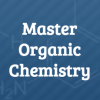You’re almost there! Hopefully your hard work has paid off so far- this is the last section this syllabus will cover. Make sure you to take time to review the above sections before your final. This section will deal with specific functional groups. Namely, you guessed it, alcohols, ethers, and organometallic compounds.
Alcohols are compounds with an -OH group attached to them. Ethers contain an -O- group somewhere within the chain of atoms. Organometallic compounds contain a Metal-Carbon (R-M) bond, which provides some useful reagents for reactions. Each of these functional groups has distinct features that you should be familiar with. As always when learning about new types of molecules, there are going to be some more rules regarding nomenclature you will need to learn.
The first thing you should learn is the new rules associated with naming molecules containing these functional groups. From there, make sure you know some of the specific properties of the functional groups and the reactions they participate in. Pay special attention to the organometallic compounds, because they have some pretty important functions as reagents. Be familiar with Grignard Reagents and Gilman Reagents. Know the difference and how they are used in various reactions.




